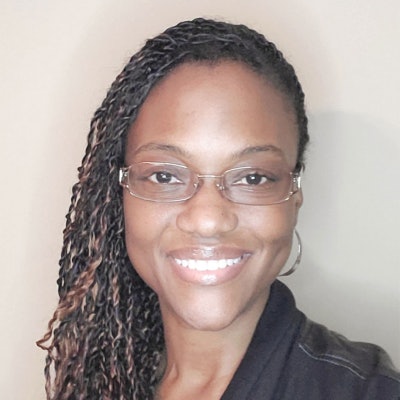Like so many sports fans, I felt sympathy for Simone Biles when she stepped away from the Olympic stage to deal with her mental health issues.
As a licensed professional counselor, I could not have been more proud to see her seek out the help that she and so many others need.
Both Biles and tennis star Naomi Osaka showed great courage to remove themselves from the limelight this summer, and it is my profound hope that their bold action will spur other young people to focus on their mental health and get help if needed.
 Seli Fakorzi
Seli FakorziThis is particularly true for the soon-to-be first-year — and sophomore — students who because of COVID are about to matriculate to their college campuses for the first time.
Following more than a year of stress and anxiety brought on by the pandemic, college administrators can’t be certain what their students’ state of mind will be when they return for in-class learning. They do know that COVID has had a long-lasting detrimental impact on student mental health. In a survey conducted this spring by my telehealth company, TimelyMD, 82% of students said they felt ongoing stress and/or anxiety a year into the pandemic.
Campus leaders also know that teens spend a lot of time by themselves, playing video games, texting but not talking, connecting online but not in person. Many new college students will find themselves thrown into a community where a sense of belonging often hinges on an ability to socialize and meet new people. It’s up to college administrators to help them put down roots and blossom rather than retreat, because feelings of isolation are often a precursor to anxiety and depression.
I am especially concerned about students of color, whose populations are disproportionately affected by COVID but who do not always know where to turn for help. One study found only a third of Latinx students seek care for mental health, and that rate is even lower for Black (25%) and Asian (22%) students.
It is important for all students to feel they are part of a supportive community, but in the midst of relocating, navigating resources, adjusting to new surroundings and learning to live on your own, building meaningful connections with new people can seem like an unattainable goal. That is why during orientation and once the semester is underway, it is crucial for colleges to offer get-to-know-you activities. In addition to the usual social networks established through intramural sports and Greek life, schools need to offer appealing options for students to get together with peers outside the classroom and communicate on a meaningful level.
Another important consideration is encouraging faculty and staff to get to know the students on a personal level, and training them to intervene when circumstances warrant. This needs to be a collective effort that empowers RAs, counselors, professors, student organization leaders and others to act if they haven’t recently seen a student in the dorm, at an activity or in class.
Training those people who have the most contact and influence in a student’s life will help those individuals detect unhealthy behaviors, and equip them to have conversations that can uncover various potential mental health issues.
Schools can also help students become self-aware of holistic health issues, and react accordingly, including learning when to ask for help, how to communicate with medical providers, and how to navigate life while managing all aspects of their health and well-being.
Simone Biles was already an Olympic champion — perhaps the GOAT (Greatest Of All Time) in her sport. Now she’s accomplished a bigger victory — championing her own mental health. By doing so, she has honored her whole self. She reminded the world that we are not just physical bodies that should be pushed beyond the brink. We are emotional, mental and spiritual creatures — and personal wellness extends to all parts of our being.
Biles just gave every one of us permission to make choices that honor our mental health. Even the champions among us need to step back now and again.
I hope this message is received loud and clear by young people. After all, they’re just trying to navigate life and all of its craziness, and that’s not easy. Especially now.
Seli Fakorzi is the director of Mental Health Operations for TimelyMD.



















